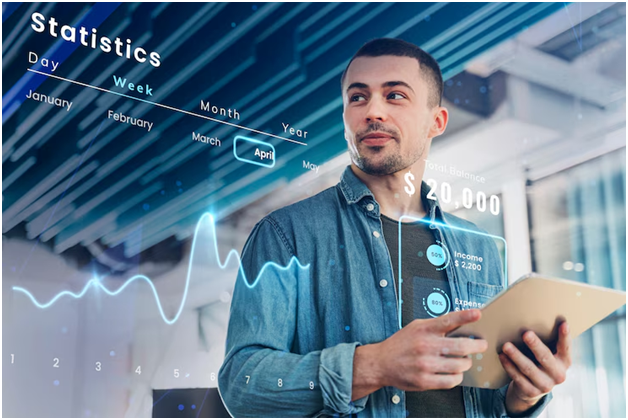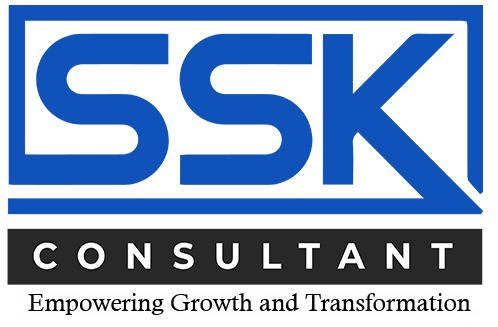What is the Future of the Consulting Industry?

For years, the consulting industry has been big business for companies that needed help to solve complex problems, deal with challenging situations, or identify and seize growth opportunities. Typically, consulting involves delivering results via human expertise, analytical skills, and strategic thinking. Now, however, the industry is on the cusp of a big change. Consulting is a new frontier for artificial intelligence (AI), and the speed at which it is changing the consulting landscape is astounding. Therefore, what does consulting have to become in an era where AI is likely to take over many consultant's tasks? To do so, let’s take a look at how AI is changing the way that consulting is done and the impact on consultants and their clients.
1. The Ability of AI as a Powerful Analytical Tool
There are some of the biggest advantages that AI brings to the table, especially for the consulting industry, including their ability to quickly and accurately process and analyze vast amounts of data. In the past, it was common for consultants to spend a lot of hours collecting and analyzing data to find trends, inefficiencies, and opportunities. With AI-powered tools, this process can be made to be more streamlined and faster. For example, machine learning algorithms could go through huge datasets, trying to find patterns that might take humans months or even weeks of work to discover.

For instance, in a plan to enhance operational efficiency for a significant retailer, AI can study supply chain information, consumer conduct, and deal patterns to recognize roadblocks and potential cost investment funds. AI doesn’t just speed up analysis; it sharpens it by providing insight not clear from traditional methods. This frees consultants to spend more time adding value in a compressed timeframe while not getting bogged down in lower-level tactical minutiae.
2. Predictive Analytics
Predictive analytics is one of the most valuable contributions AI can make to consulting. AI-powered models enable us to predict future trends, market movements, and customer behavior better than a human being can. Companies can make decisions based on data, mitigate their risks, and capture opportunities before their competitors.

For example, AI-driven predictive analytics can be used to model the potential outcome of various financial investment strategies or model market conditions in financial consulting areas. In human resources consulting as well, AI can use workforce data to foretell what amount of employees to hire, what percentage of the employees will quit, and what sort of training will be needed to meet the coming future. With AI, we’re able to use predictive capabilities to help our clients not only react to the changing world but anticipate and get ahead of what’s coming next.
3. Automatic Routine Tasks
It interestingly applies to AI as one of the more immediate impacts on consulting is to automate routine and time-consuming tasks. Much of a consultant's time is spent collecting data cleaning it and generating reports. With the help of AI tools, we can automate much of this work, and consultants can do higher-level work such as strategy development, client engagement, and implementation. For instance, AI-driven chatbots can deal with primary client questions, or software apparatuses can naturally make monetary reports, showcasing examination or assessment of working effectiveness. Automation doesn’t replace consultants but frees up their time so they can concentrate on delivering more in-depth, more valuable insights to better solve a problem.
4. Personalization at Scale
Thanks to AI, consultants can now provide clients with solutions that are highly personalized at scale. AI algorithms can look at a client’s circumstance as it is instead of assuming something to be true and recommending something based on assumptions, which is what a one-size-fits-all all does, and instead can analyze these unique situations and pull out specific data points to suggest custom tailoring of these strategies. For example, in a marketing strategy that's built around a company’s customer demographics or a financial restructuring plan that takes shape from a business’s cash flow patterns, AI helps consultants to advise more specifically and actionably.
Take marketing consulting as an example: if AI is able to assess how customers behave, and segment audiences down to a granular level, marketing consultants can craft hyper-personalized campaigns that talk directly to the needs and wants of a mass audience. Through the use of AI, we are able to deliver a level of personalization that enriches the value that consultants bring to clients by delivering solutions more targeted and more effective.
5. AI Is augmenting, Not Replacing, Consultants
But AI is unquestionably transforming the consulting industry, and while it won’t replace consultants, it will render those without AI capabilities almost completely obsolete. So, instead, AI will assist consultants in their work. The fundamental element of consulting will always be human—empathy, creativity, and awareness of the subtleties within the dynamics of a client. AI makes consultants more capable and better at decision-making. Though they can work well with repetitive tasks, crunching large datasets, and predicting models, it's the consultant who can interpret the results place them in the right context, and send them in for the right solution to the client. The new world of consulting is the convergence of human expertise and AI-generated insights.
AI-powered future.
There is no doubt about the future of the consulting industry and AI. Enhanced analytics and automation, personalization, and predictive insights are all changing the way consultants work and what value they deliver. But you can’t replace that human touch. The consultants who take on AI as an extension of their selves, versus something to fear, are the ones who will lead the industry into the new future. Those consultants that can sway AI’s capabilities with human intuition, creativity, and empathy will likely be the most successful, bringing clients cutting-edge solutions, but also personal and strategic guidance.

